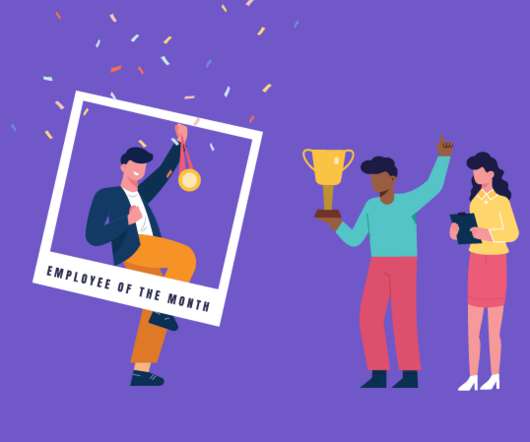The 5 Most Important and Critical Skills for Jobs of the Future
Career Advancement
MARCH 8, 2021
Talk with managers in other departments about how to enhance your employees’ ability to collaborate on multidisciplinary teams. If you supervise other managers, encourage them to have these conversations with their employees so everyone in your organization maintains a relevant and valuable skillset. Foster collaboration.














Let's personalize your content